
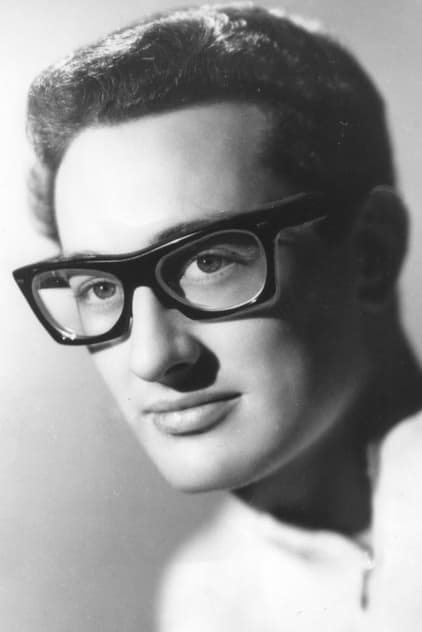
Buddy Holly
Born: September 7, 1936
Died: February 3, 1959
in Lubbock, Texas, USA
Died: February 3, 1959
in Lubbock, Texas, USA
Charles Hardin Holley (September 7, 1936 – February 3, 1959), known as Buddy Holly, was an American singer and songwriter who was a central and pioneering figure of mid-1950s rock and roll. His style was influenced by gospel music, country music, and rhythm and blues acts. In 1955, after opening for Elvis Presley, he decided to pursue a career in music. After a show in Clear Lake, Iowa, he chartered an airplane to travel to his next show in Moorhead, Minnesota. Soon after takeoff, the plane crashed, killing Holly, Ritchie Valens, The Big Bopper, and the pilot in a tragedy later referred to by Don McLean as "The Day the Music Died" in his song "American Pie".
During his short career, Holly wrote and recorded many songs. He is often regarded as the artist who defined the traditional rock-and-roll lineup of two guitars, bass, and drums. He was a major influence on later popular music artists, including Bob Dylan, The Beatles, The Rolling Stones, Eric Clapton, The Hollies (who named themselves in his honor), Elvis Costello, Dave Edmunds, Marshall Crenshaw, and Elton John. He was among the first artists inducted into the Rock and Roll Hall of Fame, in 1986. Rolling Stone magazine ranked him number 13 in its list of "100 Greatest Artists."
During his short career, Holly wrote and recorded many songs. He is often regarded as the artist who defined the traditional rock-and-roll lineup of two guitars, bass, and drums. He was a major influence on later popular music artists, including Bob Dylan, The Beatles, The Rolling Stones, Eric Clapton, The Hollies (who named themselves in his honor), Elvis Costello, Dave Edmunds, Marshall Crenshaw, and Elton John. He was among the first artists inducted into the Rock and Roll Hall of Fame, in 1986. Rolling Stone magazine ranked him number 13 in its list of "100 Greatest Artists."
Movies for Buddy Holly...
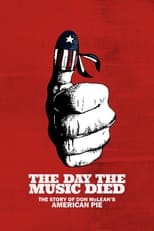
Title: The Day the Music Died: The Story of Don McLean's "American Pie"
Character: Self (archive footage)
Released: July 8, 2022
Type: Movie
With a narrative running deeper than a catchy tune and cryptic verses, “American Pie” is a musical phenomenon woven deep into the history of American culture, entertaining audiences around the world for over 50 years. This documentary tells the stories of the people who were a part of this moment from the beginning, shows the point of view of a new generation of artists who are motivated by the same values and ideas that inspired the song’s creation, and highlights cultural moments in America’s history that are as relevant now as they were in 1971, when the song was released.

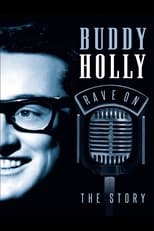
Title: Buddy Holly: Rave On
Character: Self (archive footage)
Released: May 12, 2017
Type: Movie
Documentary following the life of rock 'n' roll legend Buddy Holly.

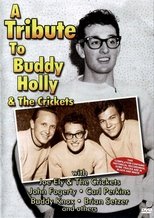
Title: A Tribute To Buddy Holly And The Crickets
Character: Himself
Released: March 21, 2004
Type: Movie

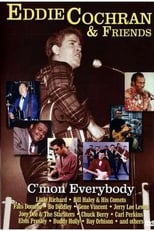
Title: Eddie Cochran & Friends: C'mon Everybody
Character: Himself
Released: January 1, 2004
Type: Movie

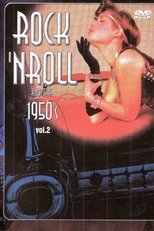
Title: Rock 'n' Roll and the 1950's Vol. 2
Character: Chanteur
Released: August 29, 2003
Type: Movie


Title: Behind The Music: The Day The Music Died
Character: Self (archive footage)
Released: February 3, 1999
Type: Movie
On February 3, 1959, American rock and roll musicians Buddy Holly, Ritchie Valens, and "The Big Bopper" J. P. Richardson were killed in a plane crash near Clear Lake, Iowa, together with pilot Roger Peterson.

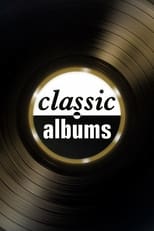
Title: Classic Albums
Character: Self (archive footage)
Released: April 14, 1997
Type: TV
A documentary series about pop and rock albums that are considered the best or most distinctive of a well-known band or musician or that exemplify a stage in the history of music.

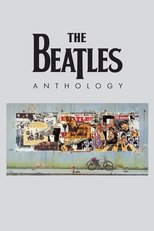
Title: The Beatles Anthology
Character: Self (archive footage)
Released: November 19, 1995
Type: TV
A documentary series on the career of The Beatles.


Title: When the Music's Over
Character: Self (archive footage)
Released: June 14, 1983
Type: Movie
Rare clips of performance and interviews by a multiple of stars, all prematurely lost.

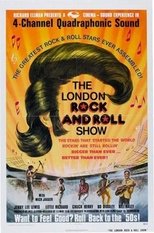
Title: The London Rock and Roll Show
Character: Performer
Released: January 1, 1973
Type: Movie
Filmed record of a major rock and roll festival held at Wembley Stadium, London, in August 1972. London Rock and Roll Show begins with excerpts from numerous "warm-up" performers shown singing either covers of 1950s hits, or original tunes, including a performance by Screaming Lord Sutch that threatens to end the concert prematurely when he brings a stripper on stage. The main concert segment begins with Bo Diddley and continues with a string of other major performers including Jerry Lee Lewis, Little Richard, and Bill Haley and His Comets. The concert ends with an extended performance by Chuck Berry, who at the time was enjoying major chart success in Britain and the US with his "My Ding-a-Ling" (although he does not perform that song in this film). Mick Jagger also appears in several non-musical interludes in which he is interviewed about the performers.

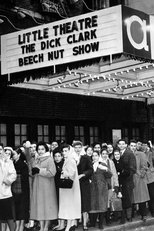
Title: The Dick Clark Show
Character: Self
Released: February 15, 1958
Type: TV
The Dick Clark Show is an American musical variety show broadcast weekly in the United States on the ABC television network 7:30-8 PM on Saturdays from February 15, 1958 through September 10, 1960, sponsored by Beechnut Gum.

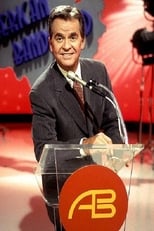
Title: American Bandstand
Character: Self
Released: August 5, 1957
Type: TV
American Bandstand was an American music-performance show that aired in various versions from 1952 to 1989 and was hosted from 1956 until its final season by Dick Clark, who also served as producer. The show featured teenagers dancing to Top 40 music introduced by Clark; at least one popular musical act—over the decades, running the gamut from Jerry Lee Lewis to Run DMC—would usually appear in person to lip-sync one of their latest singles. Freddy "Boom Boom" Cannon holds the record for most appearances at 110.
The show's popularity helped Dick Clark become an American media mogul and inspired similar long-running music programs, such as Soul Train and Top of the Pops. Clark eventually assumed ownership of the program through his Dick Clark Productions company.

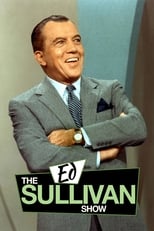
Title: The Ed Sullivan Show
Character: Self
Released: June 20, 1948
Type: TV
The Ed Sullivan Show is an American TV variety show that originally ran on CBS from Sunday June 20, 1948 to Sunday June 6, 1971, and was hosted by New York entertainment columnist Ed Sullivan. It was replaced in September 1971 by the CBS Sunday Night Movie, which ran only one season and was eventually replaced by other shows.
In 2002, The Ed Sullivan Show was ranked #15 on TV Guide's 50 Greatest TV Shows of All Time.
